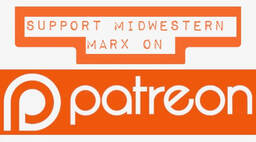|
11/10/2021 Book Review: The Twilight of American Culture- Morris Berman. Reviewed By: Thomas RigginsRead NowMorris Berman is recognized as a major still active left (bourgeois) American culture critic. He is a prolific author of many books but they are, I fear, very similar to the style of thinking found in The Twilight of American Culture. This “Blast from the Past” is still contemporary, US capitalism is still an existential threat, and the solutions such as as they are in this book, are still typical of those writers who fail to factor in the necessity for revolutionary Marxist approaches According to the dust jacket this book is "brilliant", has "uncommon insight," is "trenchant" and in the words of one writer the author is "one of the most creative and original thinkers of our time." Having read the book, I can only shudder to think this collection of puerile nonsense and ignorant rambling could have been taken seriously by any publisher. That it was published at all is a sure sign that we are indeed in the twilight of our culture. In this book Berman proposes to diagnose what is wrong with our culture (it is too commercial, people only care about money, and big corporations control everything) and to propose a solution by which our cultural heritage can be restored (intellectuals should become monks, stay out of mass movements to avoid "groupthink," and individually try to preserve cultural values so that in one or two hundred years when our current civilization collapses the monkish works of preservation will emerge back into the open). It seems that all his ideas and inspiration come from reading science fiction. He is especially inspired by Walter Miller’s A Canticle for Liebowitz, Bradbury’s Fahrenheit 451 and Ira Levin’s This Perfect Day. I can’t fault Berman’s critique of modern American life. It has been taken over by the large corporations, it is a cultural wasteland in which the poor get poorer and the rich richer (there are no "workers" in Berman’s critique--just "poor" and "rich" and a shrinking middle class) but his historical analysis and solutions are so off the wall as to be comical--as is his knowledge of Marxism. He confuses Marx’s views of history with Adam Smith's "invisible hand" and thinks Lenin had no ideas on how to replace capitalism. He is fond of using examples from Roman history to make comparisons with the US but doesn’t seem to have any real knowledge of the ancient world. He mistakenly thinks classical civilization was deliberately preserved in the monasteries of the middle ages without realizing that the monks also destroyed the classics, washing them off parchments so that Bible stories and lives of the saints could be written over them. In Berman’s own words--the current crises in American culture "began in Europe at the end of the Middle Ages, expanded during the Scientific and Industrial Revolutions and finally climaxed in our own times." This crisis is "corporate hegemony" which will break down "forty or fifty years down the road as of this writing" [good--just in time for the bicentennial of the Communist Manifesto--t.r., reviewer’s comments in brackets]. Berman informs us that "This type of breakdown, which is a recurrent historical phenomenon, is a long-range one [I should think so--we have been waiting since "the end of the Middle Ages"] and internal to the system." That is the extent of the social analysis and it’s a lot shorter than having to read Das Kapital. Berman’s ignorance of his subject matter is so extreme as to defy belief. Here are some samples: "Hegel...saw history as a kind of spiritual journey [New Agers listen up!] in which Geist ("spirit") moved around the globe, generating the Renaissance in fifteenth-century Florence, and sowing the seeds of decay when it subsequently departed." Spirit for Hegel is not a globe-trotting phenomenon sowing seeds of decay--it's a progressive activity that advances, it doesn’t decay, and it's the German Reformation not the Renaissance in which Hegel is particularly interested. Later on he informs us that the "dialectics" of Aristotle and Hegel have much in common--seemingly unaware that Hegel’s dialectical logic is based on the opposite assumptions from those of Aristotle. Berman on Marx: "’Men make their own history,’ he [Marx] wrote, ‘but they do not make it just as they please....’"[Marx means that they are constrained by historical circumstance]. But Berman thinks that Marx is Adam Smith because he, Berman, writes: "They each have individual intentions, he [Marx] says, but the final outcome is something that no particular person expected or planned." The individual calculus is perfectly Smithian--the "invisible hand" and has nothing to do with the class based analysis undertaken by Marx. Berman on Lenin [I note that Lenin is not listed in the index, but Jay Leno is]: "What is to be done?" Berman is referring to the fact that capitalists are responsible for so much misery and environmental destruction. "Lenin’s answer to this question was to kill these jokers in tailored suits who are literally murdering our communities. As they build financial capital, they destroy cultural capital, human capital--the true assets of a nation [India thus has more assets than the US]. The problem--since the dilemma is structural--is that there are plenty of other such entrepreneurs in the wings, ready to replace them." [I can hear Lenin saying "Doh! Why didn’t I think of that?"] "No," says Berman, "something much more long-range is needed at this point." So Berman thinks Lenin had no other plans than just killing bad guys! In another place Berman makes reference to the "fetishism of commodities" another idea from Marx--only Berman thinks it means a desire to accumulate goodies in a shopping mall thus completely missing Marx’s meaning, viz. that the commodity economy created by humans is seen as a natural force to which humans are subject. All this only shows that Berman hasn’t read or hasn’t understood Hegel [he might be forgiven this] or Marx or Lenin. What is the root cause of the recent wars waged by US Imperialism [not Berman’s term]? The answer is cultural "anomie"--"the culture no longer believes in itself, so it typically undertakes phony or misguided wars (Vietnam, or the Gulf War [forget oil] of 1991, for example)...." This is certainly "trenchant." [The wars of the last twenty years as well as MAGA are also all due to misguided cultural anomie it seems.] As for his "monastic option"--forget political struggle or labor unions--Berman thinks our cultural heritage must be saved by special individuals: "Today’s 'monk' is committed to a renewed sense of self, and to the avoidance of groupthink, including anticorporate or anti-consumer culture groupthink.... The more individual the activity is, and the more out of the public eye, the more effective it is likely to be in the long run" [that’s the long run in which we are all dead]. So Berman’s book is a capitulation to the very forces of decay and degeneration that he is ostensibly combating. There is nothing our corporate masters would like better than for the opposition to go into its shell and be individually dedicated to cultural preservation while "globalization" recklessly indulges in "anomie" and wages its mistaken wars. The "groupthink" of the peace movement, civil rights movement or labor movement, to say nothing of the socialist movement, is the last thing it wants to confront. And this may well be why mainstream publishing companies publish books like Berman’s. The Twilight of American Culture by Morris Berman New York, W.W. Norton & Co., 2000. AuthorThomas Riggins is a retired philosophy teacher (NYU, The New School of Social Research, among others) who received a PhD from the CUNY Graduate Center (1983). He has been active in the civil rights and peace movements since the 1960s when he was chairman of the Young People's Socialist League at Florida State University and also worked for CORE in voter registration in north Florida (Leon County). He has written for many online publications such as People's World and Political Affairs where he was an associate editor. He also served on the board of the Bertrand Russell Society and was president of the Corliss Lamont chapter in New York City of the American Humanist Association. Archives November 2021
0 Comments
Leave a Reply. |
Details
Archives
July 2024
Categories
All
|


 RSS Feed
RSS Feed